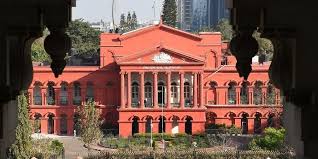


The Kerala High Court recently held that investigating agencies cannot seize or retain passports from accused persons unless the passport was used or suspected to have been used to commit a crime [Davood v. State of Kerala].Justice Bechu Kurian Thomas observed that the long retention of a passport by investigating agencies would amount to impounding it, which is not permitted."The passport of an individual is an important document and is issued under the provisions of the Passports Act, 1967. In the absence of any crime committed or suspected to have been committed with the said document, a passport cannot be seized or retained by the investigating agencies ... The long retention of a passport without even a condition in the bail order will amount to impounding, which is opposed to law," the Court held.To arrive at this conclusion the Court referred to the judgment of the Supreme Court in Suresh Nanda v. CBI in which it was held that though the police may have the power to seize a passport under Section 102(1) of the Code of Criminal Procedure (CrPC), it does not have the power to impound a passport, which can be done only by the Passport Authority under Section 10(3) of the Passports Act, 1967.It was noted that the top court had also observed that there is a difference between the seizure of a document and the impounding of a document."After the seizure of a document, if the property is retained for some period of time, the said retention amounts to impounding of the property or document. The Supreme Court also observed that even the court cannot impound a passport despite section 104 of Cr.P.C., as the said provision will enable the court to impound any document or thing, other than a passport," the High Court said.The order was passed on a petition moved by a man who was arrested in April 2022 under the Narcotic Drugs and Psychotropic Substances Act,1985, for allegedly receiving a parcel containing 3.5 kilograms of hashish.He was released on bail a month later following which he moved the Sessions Court, Ernakulam seeking the release of his passport, ID card and mobile phone, which were all seized by the police at the time of his arrest.However, the Sessions Court rejected his application, noting that one of the conditions imposed while granting bail is that the petitioner shall not leave the State of Kerala without the permission of the trial court. It was further observed that if the identity card and other materials are returned, he may misuse the same.This prompted him to move the High Court contending that the materials seized cannot be retained by the respondent authorities since they are unconnected with the alleged crime. It was also argued that the seizure of the passport was done without the authority of law as it was not at all involved in the alleged crime.The counsel for the Narcotics Control Bureau, which is investigating the case, opposed the petition. It was argued that the mobile phone of the accused had to be sent for forensic analysis and that releasing his passport and identity card would only assist the petitioner in fleeing from the clutches of law.The High Court noted that the order granting the petitioner bail did not have any condition requiring him to deposit his passport with the court or the investigating officer."The restriction that petitioner shall not travel outside Kerala without permission from the Court cannot be a reason to retain his passport," the Court added.As for the mobile phone, the Court said that the forensic analysis ought to have been done by now since it was seized in April 2022. The identity card of the petitioner would be of no use to the investigation, the Court further observed.Therefore, it allowed the petition and directed the investigating agency to release the passport, mobile phone and identity card to the petitioner.The petitioner was represented by advocates VV Joy, Rajit, and Ramakrishnan MN.The State was represented by Public Prosecutor V Sreeja and advocate KR Rajagopalan Nair.Advocate Navaneeth N Nath appeared for the Narcotics Control Bureau.
TAGS: Kerala High Court Police power Impound passport Supreme Court judgment Suresh Nanda v. CBI